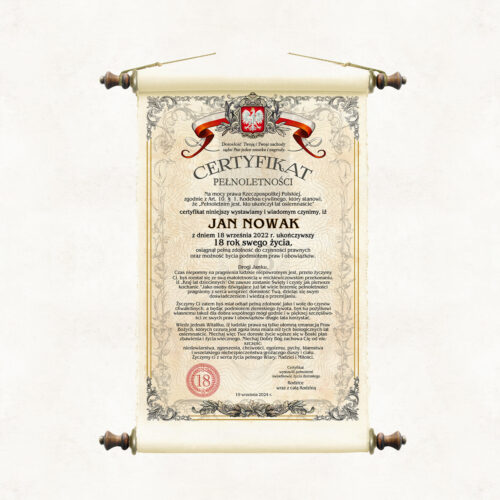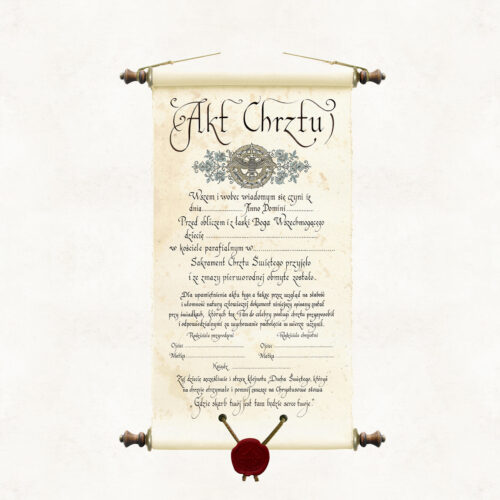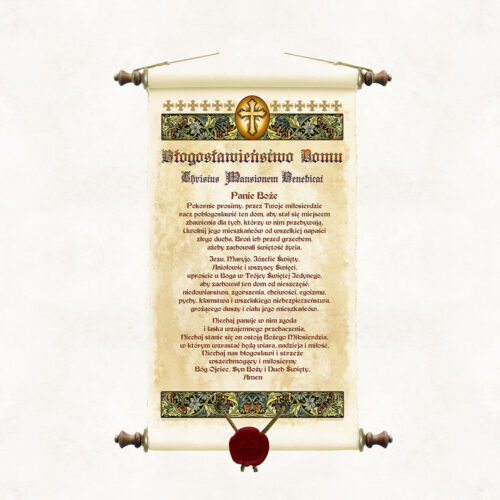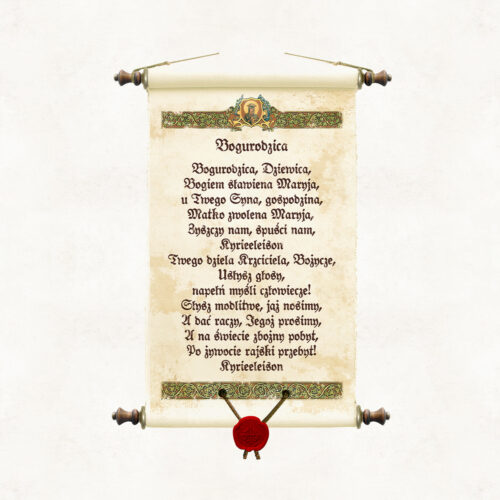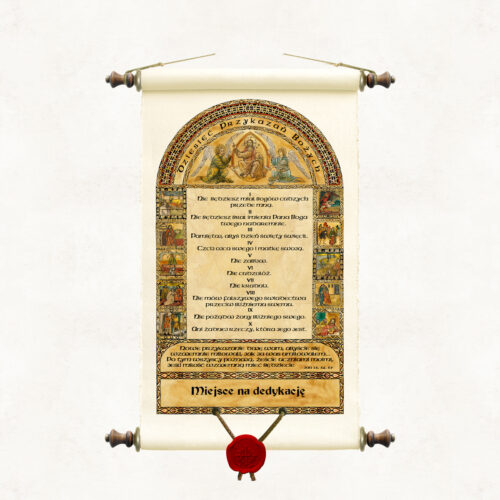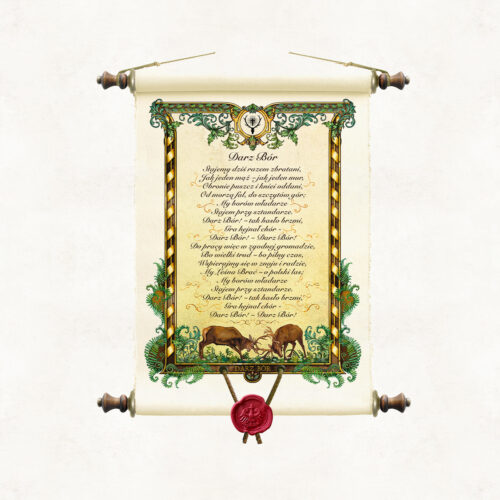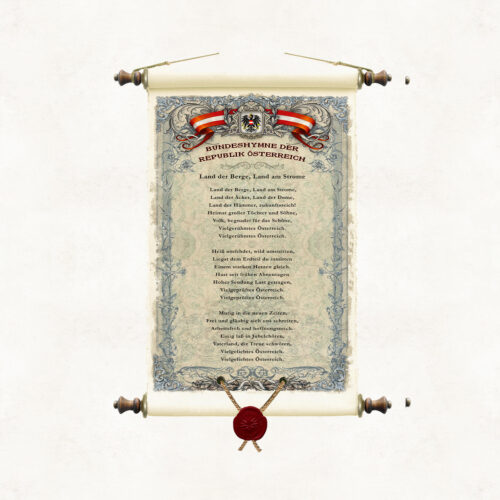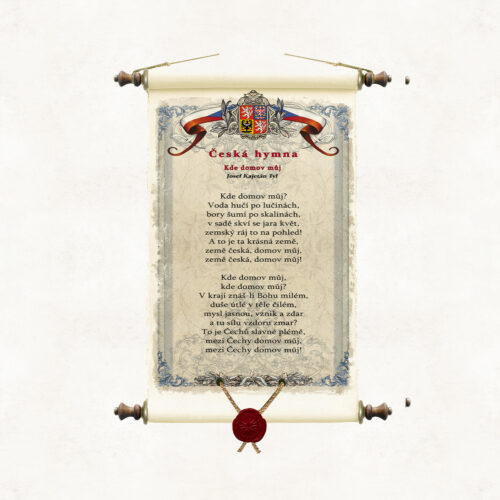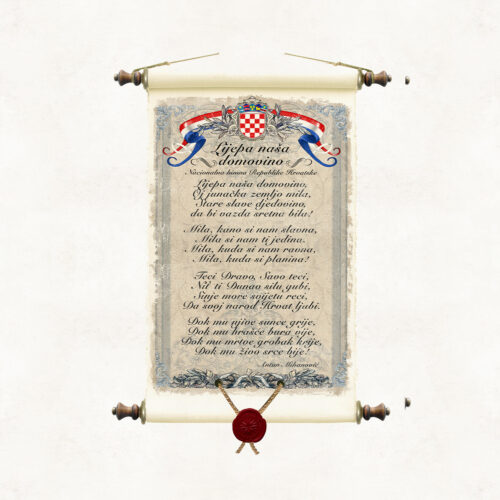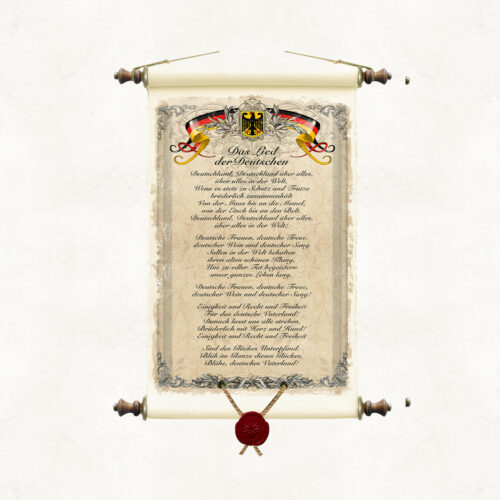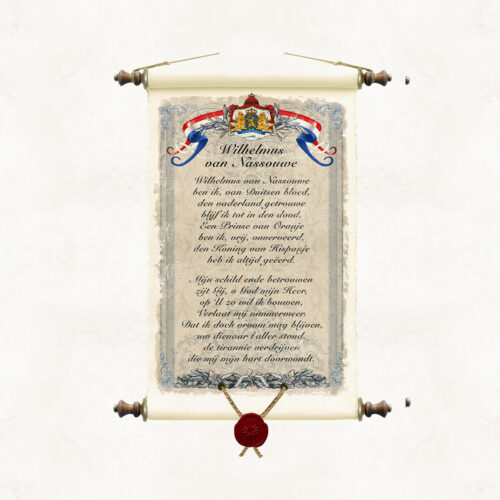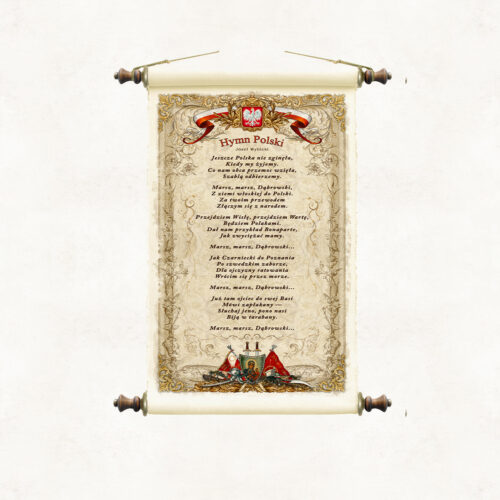-
A unique gift and unusual souvenir for the 18th birthday. An original scroll written in the form of a paradocument confirming that a young person has reached the age of majority. The certificate at the outset refers to the law of the Republic of Poland, indicating the article of the Civil Code defining when a young person becomes an adult. In addition to a brief reference to legal considerations pertaining to adulthood, the certificate is also an original declaration of the formal support that those close to the birthday boy and girl are giving for their budding adulthood. Full of good wishes, warmth and life advice, it will be, years later, a remarkable souvenir of the rapidly passing youth. The document can be issued by both family and those close to the 18-year-old. Respecting worldview attitudes, we wrote it in two slightly different versions, one for religious people and the other for secular people.
-
A stylized document certifying baptism, which is an artistic copy of the original baptismal certificate issued in the parish where the child was baptized. It contains annotations from the metrical books. Unlike the modest, standard parish document, it has the form of a solemn act commemorating the most important event in the religious life of a Christian. We issue this scroll in a basic version to be filled out by yourself, or personalized for an extra charge (after the customer provides the data).
-
Original scroll with a beautiful prayer for the blessing of a house and its inhabitants beginning with the Latin phrase Christus mansionem benedicat (“May Christ bless this house”). Receiving and giving blessings is one of the most essential aspects of the religious life of Christians. Praying the Blessing are words equipped with effective spiritual power to make an individual or community feel empowered and secure, free from fears and immune to the influences of evil. The Blessing is a gift of God, from whom all good comes, a tangible manifestation and confirmation of His life-giving presence in the world and favor towards those who trust in Him. Our publication is a beautiful testimony of faith....
-
Bogurodzica - a medieval Polish religious song and the oldest Polish poetic text preserved with melody. The date of the composition is not known, it is assumed that it occurred in the 13th or 14th century, although the first record of the text comes only from the beginning of the 15th century (the year 1407). In 1506, the text of the song was appended to the Statutes of Jan Łaski with the erroneous information that its author was St. Adalbert.
-
The Decalogue (Ten Commandments) is an expression of the basic duties of man towards God and towards his neighbor, it reveals in its essential content serious obligations. They are by their nature unchangeable and apply always and everywhere. No one can dispense from them. The Ten Commandments were engraved by God in the heart of man.
-
The author of the text of the song and the call “Darz Bór” is a forester, engineer Stanislaw Wyrwinski, who wrote it for the General Meeting of Foresters of Greater Poland and Pomerania, held in 1920. The author, was guided by the desire to integrate Polish foresters and hunters and to eliminate greetings alien to our tradition, which remained after the partitions. The phrase “Darz Bór” was quickly adopted as a traditional formula uttered when greeting, and less often when bidding farewell to foresters and hunters, also as a form of wishing them good luck in hunting: “may the bór give you, that is, may it bestow upon you, bring you gifts.” The song “Darz Bór” to the tune of the First Brigade has become the informal anthem of Polish foresters and hunters. Linguists believe that the correct form of the forest call is written in lowercase - “darzbor”, justifying it by grammatical convention. However, some in the forestry and hunting community (Little Forest Encyclopedia) choose the original form “Darz Bór!”, used by the creator of the forestry call himself, Stanislaw Wyrwinski. Supporters of the spelling of the word “Bór” with a capital letter and separately believe that it is not accidental, that in this way the author elevates the forest to the status of an eternal natural entity, bestowing on it respect and dignity as a place of work and passion. It is more than a mere word - it is a symbol of tradition and professional brotherhood that reflects the spirit of the entire community associated with forestry and hunting. Stanislaw Wyrwinski died on April 28, 1956 in Cracow, and is laid to rest in Rakowicki Cemetery.

